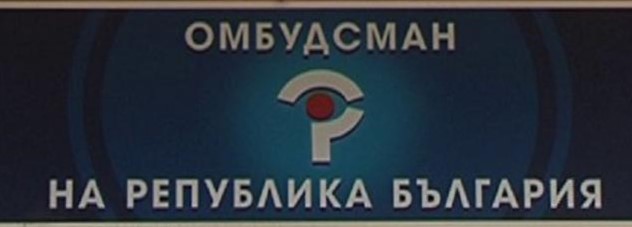News
Ombudsman Institution condemns hate speech in media

25 April 2025
The Ombudsman Institution sent recommendations to the Council for Electronic Media (CEM) and to the Director General of the Bulgarian National Radio (BNR) in response to a number of complaints from citizens who express their deep indignation with a broadcast on the BNR’s Hristo Botev Radio. They claim that inadmissible and discriminatory statements were made against the Turkish ethnic community in Bulgaria, one of which was the subject of the talk: “Why I don’t love the Turks, why I hate the Turks”.
The discussion was aired on 8 March 2025 and hosted by Mr. Anton Mitov, Director of the BNR’s Records, and his guest was the Director of the BNR’s Hristo Botev Radio Mr. Kin Stoyanov.
The two executives talked about their journey via Serbia to Bratislava and Vienna where they staged a performance – a new reading of Ivan Vazov’s novel “Under the Yoke” with actor Roussi Chanev. The record uploaded on the BNR site was switched off just when the two directors broached the subject of “slavery and against slavery”.
The Ombudsman Institution asked the BNR to provide it with the full record as a result of which the recommendations were made.
In his letters to the BNR and to the CEM, the Secretary General of the Ombudsman Dr. Aysun Avdjiev emphasizes that, in the opinion of the complainers this radio talk, apart from the fact that it violates the fundamental principles of journalistic ethics, conflicts with the Constitution of the Republic of Bulgaria, the Radio and Television Act and the Anti-Discrimination Act that unconditionally prohibit any form of hate speech and incitement to discrimination on ethnic grounds.
Dr. Avdjiev points out that the freedom to express and communicate an opinion, the freedom of speech and press reject racism, xenophobia, homophobia or any other form of intolerance on the basis on one or more of the aspects that Art. 4, para 1 of the Anti-Discrimination Act protects.
“In this case there are complaints from citizens against certainly identified individuals who exercised their right to express and communicate their opinion on a specific ethnic community, the Turks. To prevent and check such discriminatory rhetoric, measures should be taken to maintain media ethics and tolerance in what the Bulgarian National Radio airs. The right to freedom of expression is not absolute; on the contrary it entails responsibilities and obligations and may be curtailed for the sake of the protection of the rights of other Bulgarian citizens,” the Secretary General of the Ombudsman adds.
Regarding the talk in question aired by the BNR nationally, the Secretary General of the Ombudsman emphasizes that the matters as formulated implicitly suggest the hypothesis that citizens of different ethnic backgrounds are people who should be barred from society.
“The Constitution of the Republic of Bulgaria proclaims that all persons are born free and equal in dignity and rights and that all people shall be equal before the law. There shall be no restriction of rights or privileges on grounds of race, nationality, ethnic self-identity, sex, origin, religion, education, opinion, political affiliation, personal or social status or property status (Art. 6 of the Constitution)”, the Secretary General states firmly.
Dr. Avdjiev notes further that this principle in the Constitution is detailed in the Anti-Discrimination Act that arranges the protection against all forms of discrimination against all the individuals concerned. Its purpose is to ensure the right of every person to equality before the law, to equality in treatment and opportunities and effective protection against discrimination. Any direct or indirect discrimination on grounds of gender, race, nationality, ethnicity, human genome, citizenship, origin, religion or belief, education, convictions, political affiliation, personal or social status, disability, age, sexual orientation, marital status, property status or on any other grounds established by law or by an international treaty to which the Republic of Bulgaria is a party shall be banned.
“The task of this codified prohibition is to fight against and prevent the social phenomenon of discrimination whose manifestations and roots are visible in our society,” Dr. Avdjiev points out.


